Tteok, glutinous rice cake that is enjoyed as a sweet dessert or filling snack, dates back to even before the Three Kingdoms period, when people made the rice cakes by pounding grain flour.
Nowadays, this distinctive rice cake is enjoyed by many people for its chewy texture and the panoply of fillings, from fruit to beans and even butter that blend well with its mild flavor as well as its aesthetics.
Thanks to the popularity of tteok among young dessert lovers and foreign travelers, tteok is even served as a dessert at many Instagram-worthy coffeehouses. Many must-visit shops boast long lines well before their opening hour.
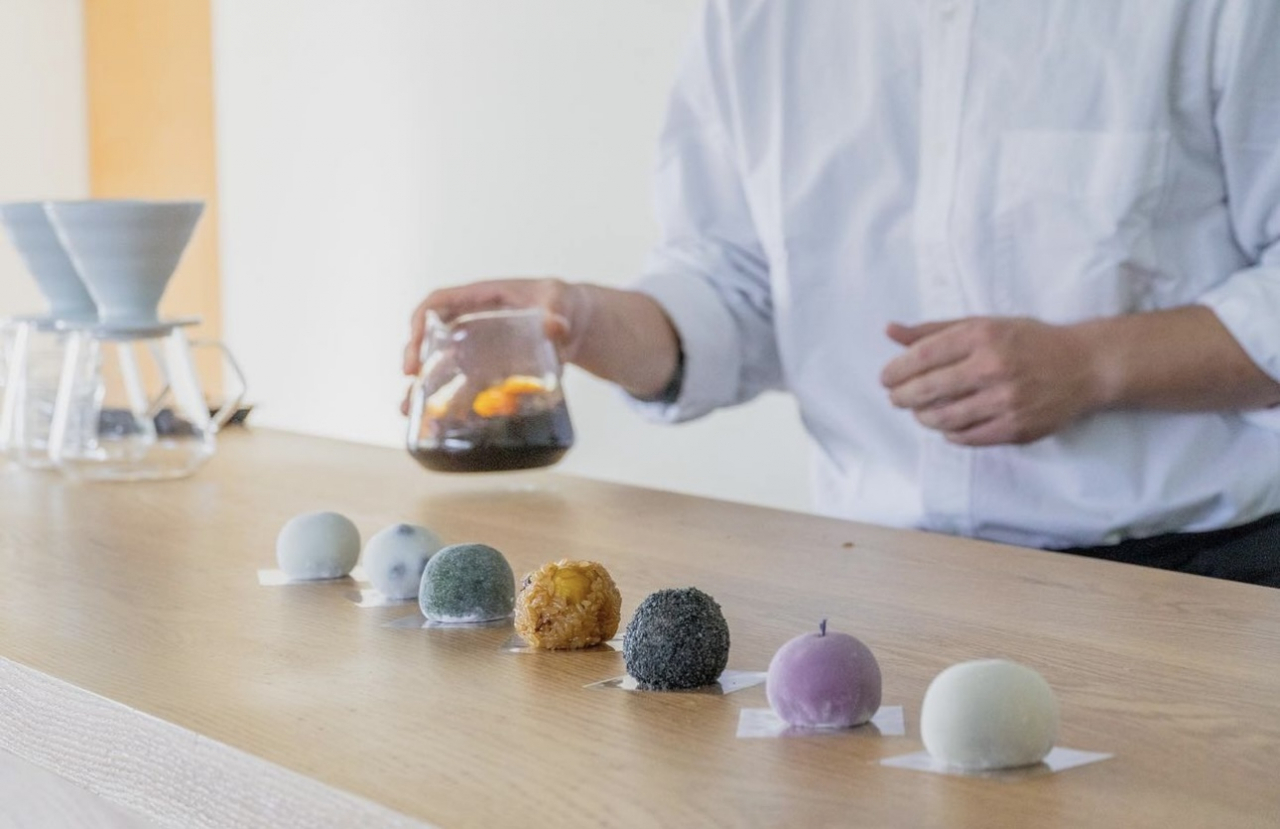 |
A selection of Jaha Seoul's tteok (Jaha Seoul) |
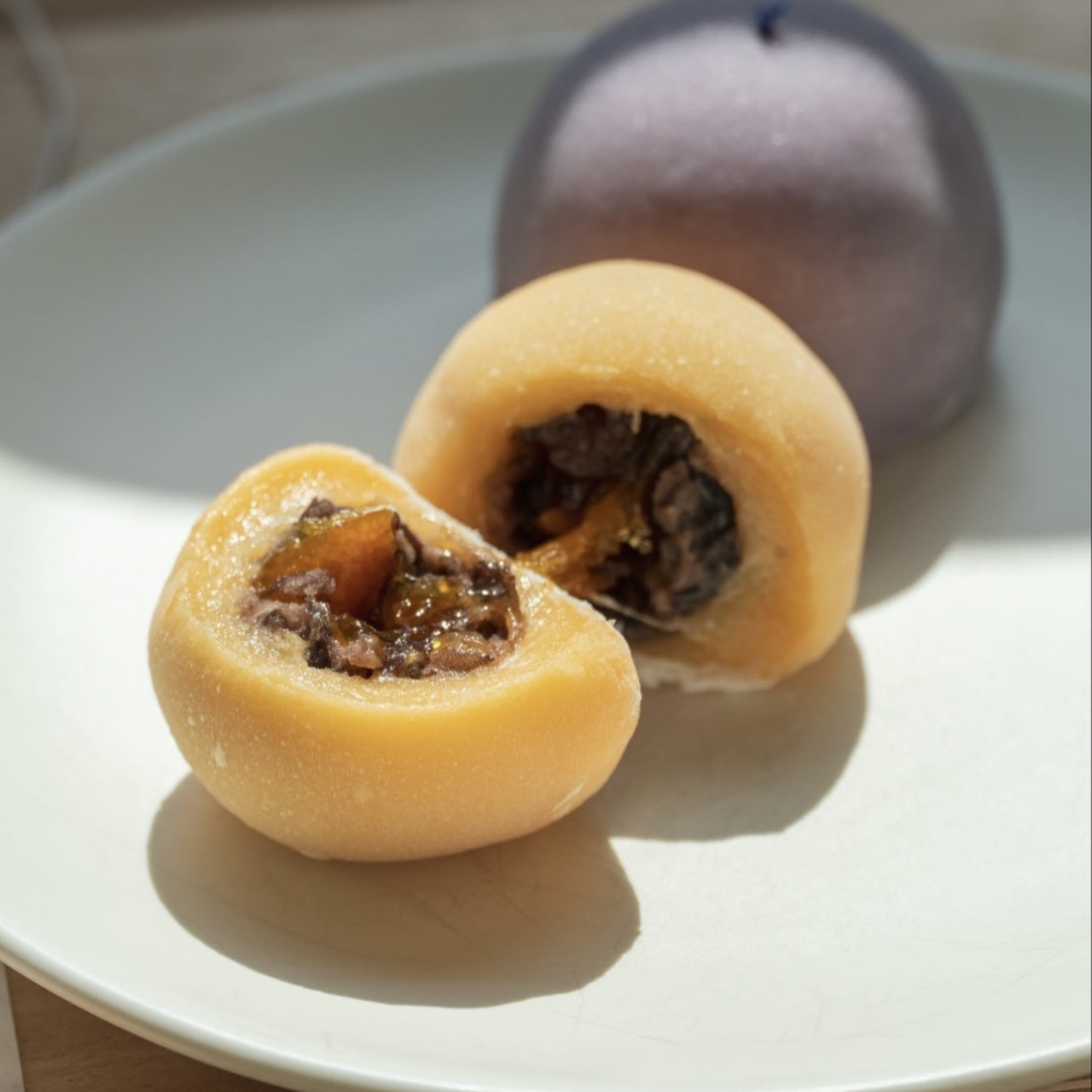 |
Jaha Seoul's persimmon tteok. (Jaha Seoul) |
Jaha Seoul, a tteok cafe located at Naesu-dong 110-46 in central Seoul's Jongno, where every morning a mother makes tteok and her son brews the coffee, is frequented by a wide range of clientele. Many visitors who love Jaha Seoul’s specialty coffee for its unique but memorable blend of mild, pleasant tastes and its pairing with bite-sized tteok, including fresh ingredients like seasonal fruits inside, tend to visit again and again.
Stepping into the small cafe on the fourth floor, the white and wooden interior catches the eye, hinting at the clean and natural taste of coffee and tteok that can be enjoyed here. Next to the counter is a display of tteok varieties made the same day at around 10 a.m., ranging from plain white tteok with red bean paste inside to colorful creations with fig, kumquat or strawberry filling. All tteok on display are real and ready to purchase -- not the illustrative mock-ups common elsewhere -- because the texture and unique coloring of Jaha Seoul's tteok is something that cannot be reproduced using other materials; only natural ingredients suffice.
Tteok at Jaha Seoul is not cut with a knife nor is it eaten in one mouthful. The tray on which the petite, round-shaped tteok comes also has a small envelope containing a silk thread inside. Carefully tie the silk thread around the tteok and it will be sliced into two clean pieces. Silk thread has been frequently used in Korean cooking throughout history, as it can withstand high temperatures, as well as being edible.
Tteok here is chewy, but doesn't stick to the teeth, thanks to their secret recipe of glutinous rice powder, salt and sugar.
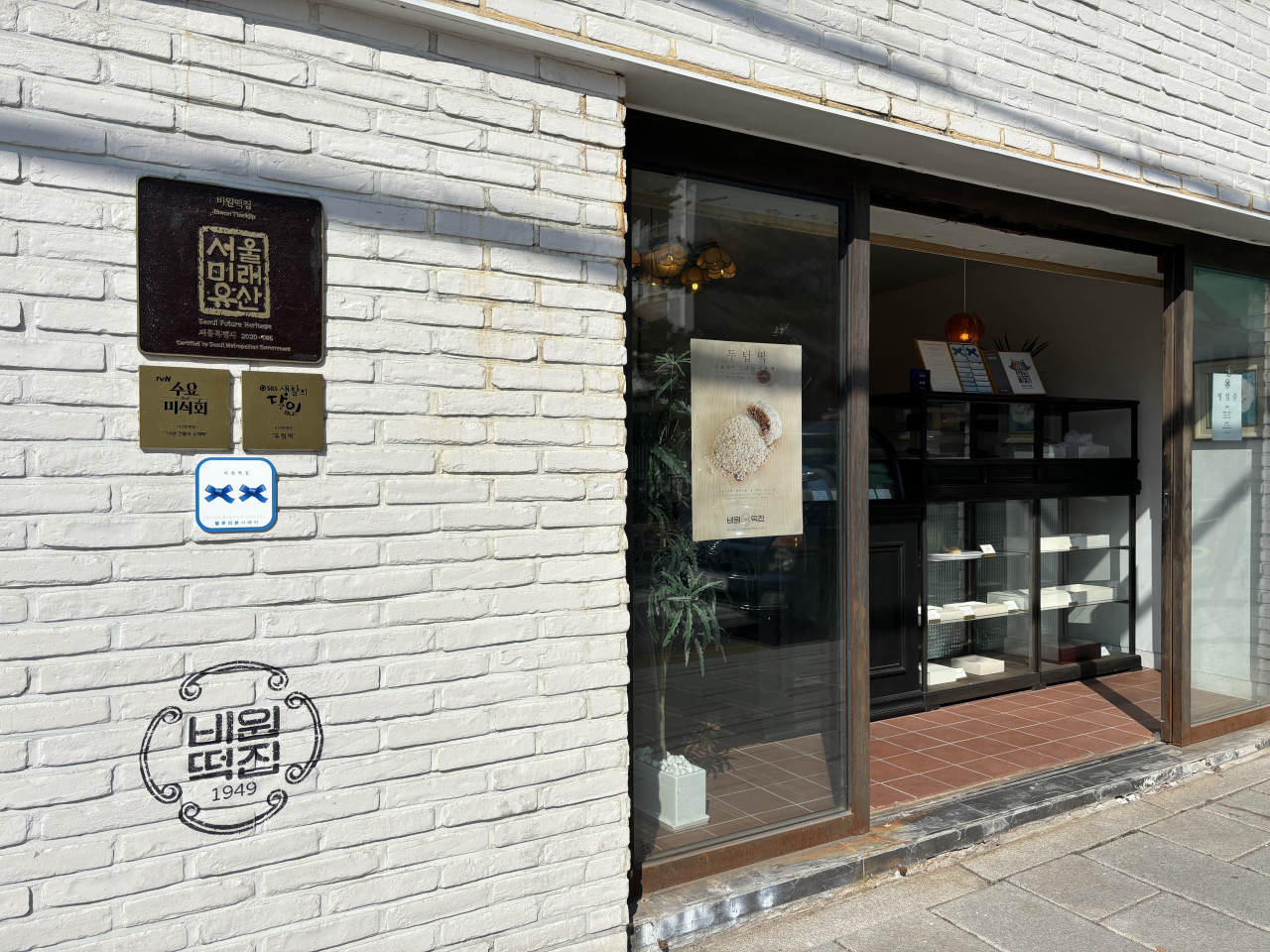 |
Biwon Tteokjib (Kim Da-sol/The Korea Herald) |
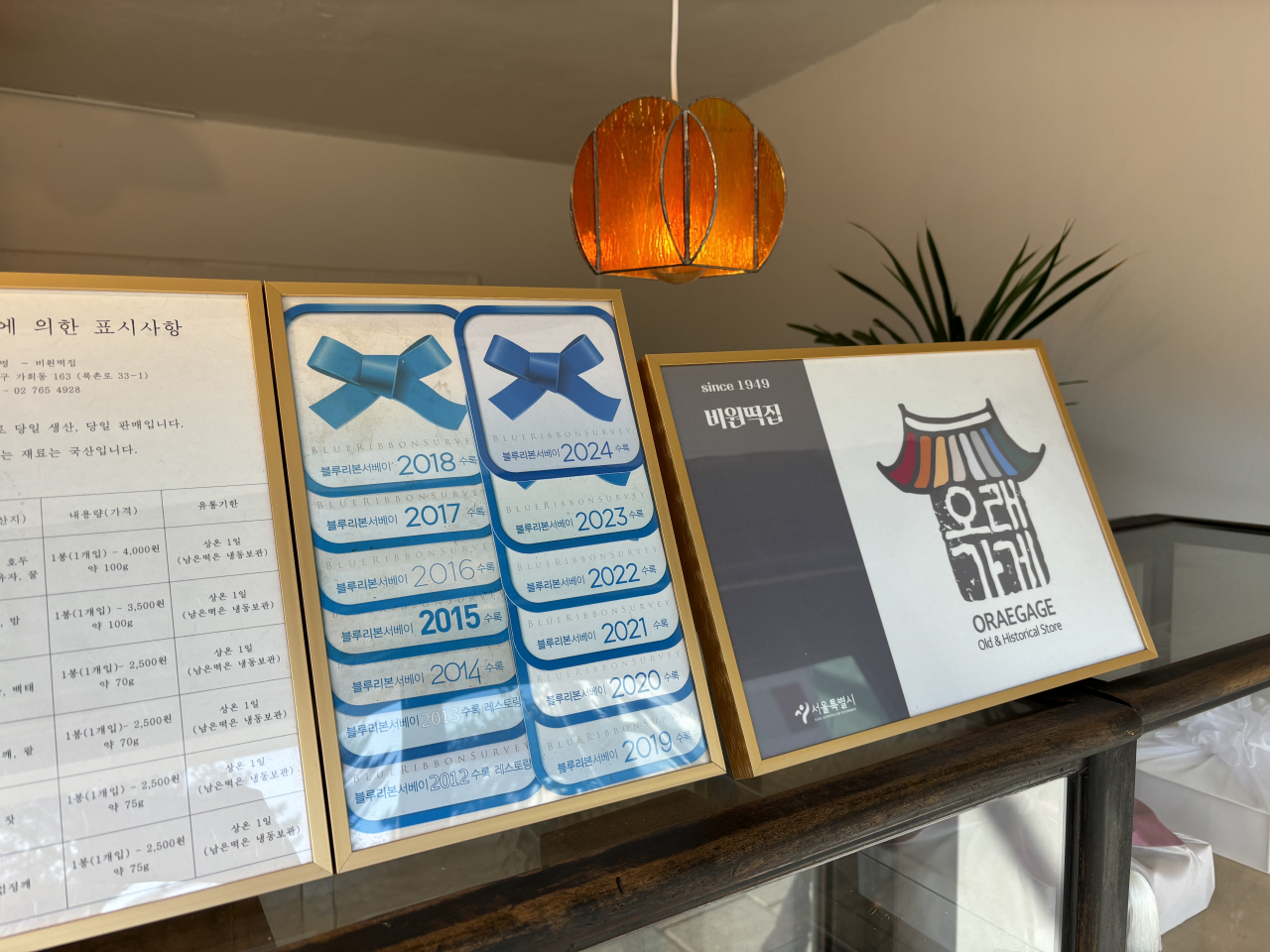 |
Biwon Tteokjib (Kim Da-sol/The Korea Herald) |
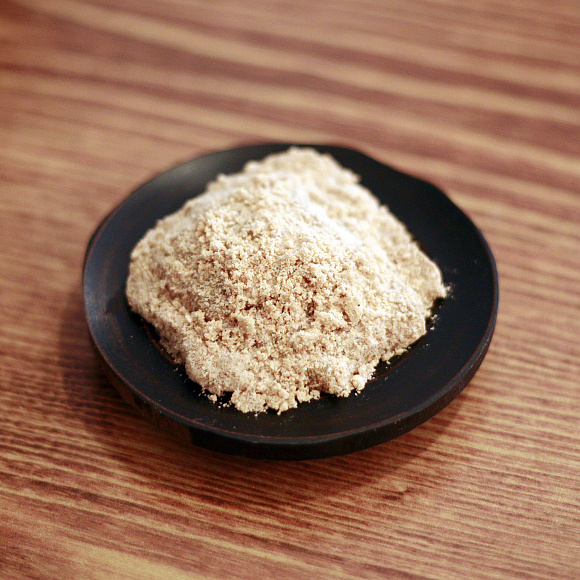 |
Biwon Tteokjib's signature Duteop tteok. (Biwon Tteokjib) |
Biwon Tteokjib is a rice cake shop with a rich history that dates back to 1949. The shop relocated to its current setting at Bukchon-ro 33-1, also in central Seoul's Jongno, four years ago. It was originally opened by Hong Gan-nan, who learned tteok making from the last royal cook of the Joseon era, Lady Han Hee-soon.
For the past seven decades, Biwon Tteokjib has stuck to the traditional method of making its signature duteop tteok. Along with nonglutinous rice -- "mepssal" in Korean -- the best quality, domestically produced ingredients like walnut, chestnut, pine nut and jujube are mixed with honey. The day here begins at 4 a.m., so customers can enjoy duteop tteok just the way Emperor Gojong enjoyed it back in the day.
Biwon Tteokjib adheres to the original recipe even amid ever-changing tastes of customers and gastronomic trends, but it caters to customers in the way it displays and packages its tteok.
Each half-palm-sized tteok is packed separately for hygiene and can be boxed in finely designed modern packages, making for a perfectly presentable gift.
Jat seolgi, which is a plain white rice cake made with pine nut powder, is another must-try here. The first bite releases the aroma of pine nut, as the rich nutty flavor fills your mouth with the combination of its simple ingredients -- rice powder, salt and sugar.
Jaha Seoul
Address: Naesu-dong 110-46, Seoul
Opening hours: 11 a.m. to 6 p.m. every day except Monday
Price range: Coffee starts at 4,000 won, tteok starts at 2,000 won
Biwon Tteokjib
Address: Bukchon-ro 33-1, Seoul
Opening hours: 10 a.m. to 6 p.m. every day
Price range: Duteop tteok 3,500 won per piece, jat seolgi 2,500 won per piece







